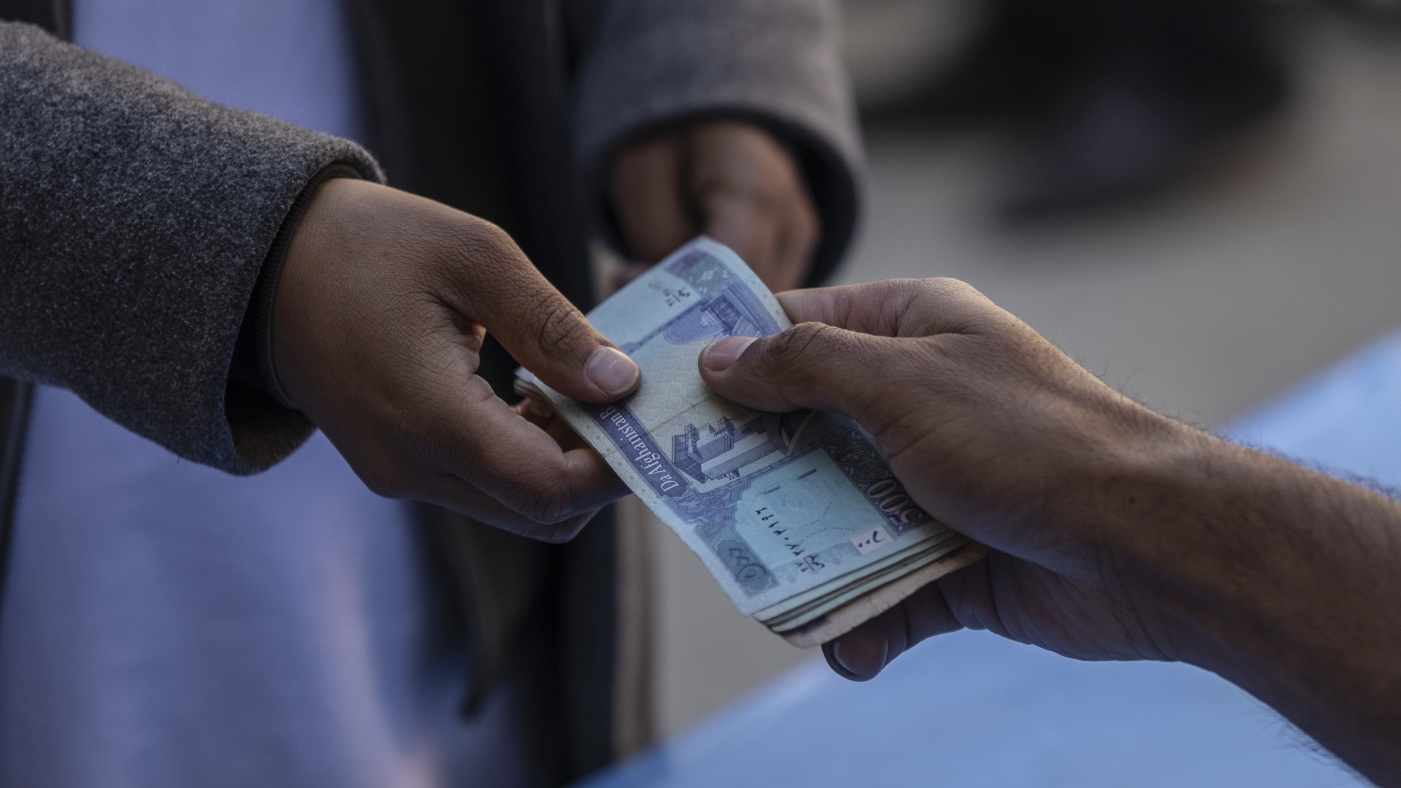The pros and cons of menstrual leave
Spain will offer paid time off for painful period symptoms: progressive step, legal minefield or tool for discrimination?

A free daily email with the biggest news stories of the day – and the best features from TheWeek.com
You are now subscribed
Your newsletter sign-up was successful
Spain is the first country in Europe to offer paid menstrual leave following similar policies in Indonesia, Zambia, Taiwan, South Korea and Japan.
The draft bill, approved by the Spanish parliament in February, allows women to request three days of paid leave per period “in case of incapacitating menstruation” such as debilitating cramps, vomiting or nausea, the Spanish Congress said in a statement.
In Spain, employees are generally entitled to a minimum of 15 days of paid sick leave per year. But as a rule, it is only paid after three days of illness. Employees taking menstrual leave would receive the statutory sick pay from the first day.
The Week
Escape your echo chamber. Get the facts behind the news, plus analysis from multiple perspectives.

Sign up for The Week's Free Newsletters
From our morning news briefing to a weekly Good News Newsletter, get the best of The Week delivered directly to your inbox.
From our morning news briefing to a weekly Good News Newsletter, get the best of The Week delivered directly to your inbox.
The policy is “part of a broader package on sexual and reproductive rights”, said Euronews, including expanding abortion access, and has “sparked intense debate over whether it will help or hinder women at work”.
UK groups have been campaigning for similar legislation. “We need to understand the experiences and challenges that people who menstruate face in the workplace, and then take steps to support them,” a spokesperson for period equality charity Bloody Good Period told BBC News.
The Labour Party has also proposed a menopause action plan, which could include paid time off for women, said The Times.
The Week takes a look at the pros and cons of the policy.
A free daily email with the biggest news stories of the day – and the best features from TheWeek.com
1. Pro: raises awareness
Supporters of period leave policies argue that “they can advance gender equality by normalising menstruation”, Marian Baird, a professor of gender and employment relations at the University of Sydney and co-author of a study on global menstrual leave legislation, told The Washington Post.
Spain’s new law is “a huge step forward because it’s got the whole society talking about this”, Bernat Fons, a union spokesperson at Girona City Hall in northeast Spain, told France24.
“The rights related to menstrual health have never been discussed [in Spain] and the data is chilling,” Ángela Rodríguez, the Spanish secretary of state for equality and against gender violence, told El Periódico. “It is important to clarify what a painful period is; we are not talking about a slight discomfort.”
About a third of women suffer from severe period pains, known as dysmenorrhea, according to the Spanish Gynaecology and Obstetrics Society, with symptoms including vomiting, diarrhoea, headaches and fever.
2. Con: could increase discrimination
Critics say menstrual leave could “reinforce negative gender stereotypes and notions of biological determinism, leading to more employer discrimination against women”, Baird told The Washington Post, adding that it was too early to properly gauge the impact of such policies.
Offering paid leave implies that menstruation is “some sort of debility that affects women’s ability to work, which is untrue”, Sally King, founder of Menstrual Matters, a non-profit organisation supporting menstrual rights, told The Times.
The idea that menstruation is a disability could reinforce the historic stereotype that it “makes women weaker”, Maria Carmen Punzi, a menstrual health researcher at Erasmus University in Rotterdam, told France 24.
Period leave could worsen perceptions that women are not as productive at work as men, especially in demanding roles, and lead to discrimination in performance reviews and promotions, Sioban Harlow, professor of epidemiology at the University of Michigan School of Public Health, told Health Central.
“In the long term, it may be one more handicap that women have in finding a job,” Cristina Antoñanzas, deputy secretary of Spanish trade union UGT, told Euronews.
Italy considered a menstrual leave law in 2017, but lawmakers worried it could be detrimental to women in the workplace.
3. Pro: could combat absences
The largest menstrual study to date, by Radboud University Medical Centre in the Netherlands in 2021, found that one in three women experienced such intense pain during periods that they were unable to carry out daily tasks. Half of these women kept their symptoms a secret, said Maria Carmen Punzi in an article for People Management.
“Menstruation-related symptoms cause a great deal of lost productivity, and presenteeism is a bigger contributor to this than absenteeism,” the study authors concluded. “There is an urgent need for more focus on the impact of these symptoms.”
Just over half of female employees have suffered period pain so strong it affects their ability to work, according to a 2016 YouGov study for the BBC.
Of 1,000 women, 52% suffered severe pain, the study found, with nearly a third of those taking at least a day’s sick leave as a result. Just 27% had told their employer that period pain was the reason.
“The impact on a woman’s career, not to mention on her mental and physical health, could be alleviated if workplaces were configured to be more sympathetic and to offer more support to women experiencing these issues,” argued Alexandra Jones for the Evening Standard.
4. Con: potential access issues
To apply for the paid leave, “employees will need to get a doctor’s note every single time”, according to Sifted, “because Spain’s public social security system will foot the bill”.
It is up to doctors to judge whether the pain is sufficiently debilitating to approve leave, which could discourage women from trying to access it.
It is also “unclear how the new law will affect freelancers”, wrote Madrid-based journalist Leah Pattem for Al Jazeera last October, “or how companies and sectors will need to reform in order to comply.”
Some people entitled to menstrual leave will not take it for fear of judgement from others at work, she added. Many “have already normalised working in pain and discomfort”.
5. Pro: helps endometriosis sufferers
Paid menstrual leave could offer relief for sufferers of endometriosis, an incurable chronic disease that affects roughly one in 10 women. The severe pain associated with endometriosis often forces employees to take days off work.
“I would go to bed crying in pain, then wake up and have to go to the office and try to push through the pain,” Iris Serra, a marketer at Barcelona-based mental health app Oliva Health, told Sifted. “I was at the point in my career where I was growing professionally but people didn’t know why I needed to take a sick day every month.”
The prevalence of endometriosis in Spain is about 16.1 per 10,000 women, according to a nationwide study in 2021. “Currently, there is a gap in global data on endometriosis, particularly in Spain,” said the report.
“We need to challenge the squeamishness and silence around menstrual health,” Emma Cox, CEO of Endometriosis UK, told BBC News.
6. Con: legal and privacy issues
Men and women who do not menstruate could argue that menstrual leave policies for women are discriminatory, as they are not entitled to the benefits, Melinda S. Malecki, an Illinois lawyer, told The Washington Post.
“I think [menstrual leave] is fraught with more problems than it solves,” Harvey R. Linder, a labour and employment lawyer in Atlanta, told The Washington Post, adding that he would advise companies against implementing it.
Spanish trade union Comisiones Obreras has raised concerns over the privacy implications, questioning how women might need to demonstrate their symptoms to claim the leave, for example by proving that they suffered from a condition known to worsen period pain – such as endometriosis or polycystic ovary syndrome, said Euronews.
It could also subject transgender men who are still menstruating to scrutiny, or infringe on the privacy of women who have experienced early menopause.
Others argue that those who do suffer severe symptoms associated with periods should already qualify for paid time off under existing law.
Harriet Marsden is a senior staff writer and podcast panellist for The Week, covering world news and writing the weekly Global Digest newsletter. Before joining the site in 2023, she was a freelance journalist for seven years, working for The Guardian, The Times and The Independent among others, and regularly appearing on radio shows. In 2021, she was awarded the “journalist-at-large” fellowship by the Local Trust charity, and spent a year travelling independently to some of England’s most deprived areas to write about community activism. She has a master’s in international journalism from City University, and has also worked in Bolivia, Colombia and Spain.
-
 The EU’s war on fast fashion
The EU’s war on fast fashionIn the Spotlight Bloc launches investigation into Shein over sale of weapons and ‘childlike’ sex dolls, alongside efforts to tax e-commerce giants and combat textile waste
-
 How to Get to Heaven from Belfast: a ‘highly entertaining ride’
How to Get to Heaven from Belfast: a ‘highly entertaining ride’The Week Recommends Mystery-comedy from the creator of Derry Girls should be ‘your new binge-watch’
-
 The 8 best TV shows of the 1960s
The 8 best TV shows of the 1960sThe standout shows of this decade take viewers from outer space to the Wild West
-
 Pros and cons of cash transfers in humanitarian aid
Pros and cons of cash transfers in humanitarian aidPros and Cons The number of people around the world receiving direct monetary aid has risen 240% since 2020
-
 The pros and cons of van life and other unconventional housing
The pros and cons of van life and other unconventional housingPros and Cons Life on the road can be liberating but hygiene is only one of the challenges
-
 Pros and cons of gene-editing babies
Pros and cons of gene-editing babiesPros and Cons Controversial scientist says he feels “unease” about the future of children whose genes he edited as embryos